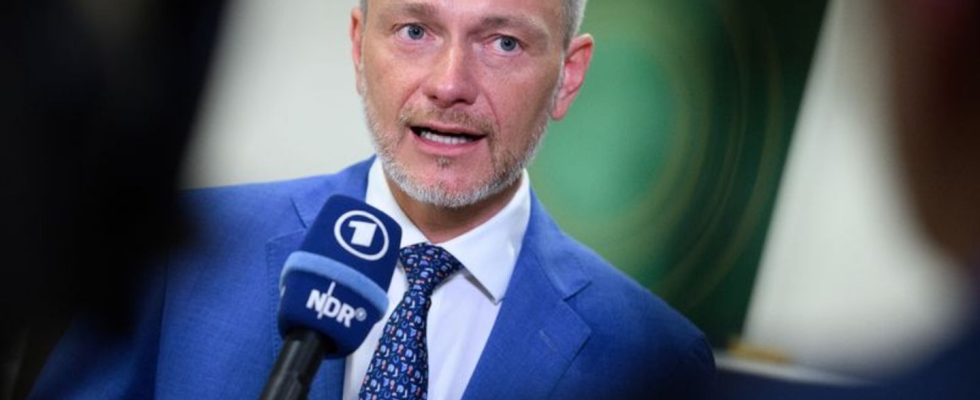parties
Lindner on appeals from the Union: No “coalition games”
Christian Lindner defends the FDP proposals for an “economic turnaround” that are controversial in the government. photo
© Bernd von Jutrczenka/dpa
Will the traffic light coalition break up at twelve points from the FDP? FDP leader Lindner rejects such mental games from the Union. Nevertheless, the noise surrounding the Liberals’ party conference proposals is surprising.
The opposition is invited to participate in reforms, but: “I’m not playing coalition games – for me it’s about providing impetus in a difficult economic situation in our country.” He also noticed negatively that the CDU and CSU had blocked the traffic light government’s Growth Opportunities Act for a long time.
Lindner defended the FDP’s proposals for an “economic turnaround”, which are controversial in the government and are to be decided at a party conference this weekend. Germany is recording the worst growth among the developed economies – the aim is to get the country back on the path to success. “Everyone has to make their contribution, including in the coalition – I think that’s what people expect from us as a government.” He called the FDP proposals, which were criticized by the SPD as “leftovers from a mothball” and “party conference folklore”, as “balanced and in the interest of our country”.
Klingbeil: Government must “pull itself together”
SPD party leader Lars Klingbeil said on ARD’s “Tagesthemen” that the government must “pull itself together” to reach an agreement on issues such as investments, reductions in bureaucracy and energy prices, which are crucial for future economic success. “For that we are now waiting for the FDP party conference. Then we have to get together very quickly and then we need decisions from this government about what to do.” The SPD, Greens and FDP would have to tackle the challenges “as a group”.
The FDP is meeting in Berlin this weekend for its 75th regular federal party conference. Twelve points “to accelerate the economic turnaround” had already caused considerable disagreement in the traffic light coalition. The FDP plans, among other things, stipulate that in the future, recipients of citizens’ benefit will have to immediately forego 30 percent of their benefits if they refuse a job. In addition, according to the wishes of the FDP, the pension at 63 should be abolished and more overtime for workers should be made possible through tax advantages.
“Socialists are also in favor of shrinking the social budget”
SPD General Secretary Kevin Kühnert warned in “Stern” against playing off economic stimulus and social spending against each other. “We have 800,000 people who receive citizen’s benefit even though they work. Two million households are entitled to housing benefit, many despite working,” emphasized Kühnert. “Better wages for these groups mean savings in the social budget. The Social Democrats are also in favor of shrinking the social budget – just by reducing injustice.”
The head of the Munich Ifo Institute, Clemens Fuest, told the Bavarian media group newspapers that it was “urgently necessary for the federal government to present a credible agenda for growth-oriented reforms.” However, the problems of the German economy cannot be attributed solely to the politics of the traffic light coalition, emphasized Fuest. “The EU is contributing to the growth of unnecessary bureaucracy, and the previous governments also failed to do a lot in terms of economic policy.”

